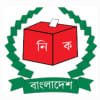No change in tune for the EC in its first year

It has been a year since the new Election Commission (EC) was constituted according to a law that has stipulated the qualifications of the chief election commissioner (CEC) and other commissioners, as well as their recruitment process – although the law itself is not above controversy. Since the new EC's appointment, the government and the ruling party have been relentlessly trying to pursue and convince everyone within the country as well as the interested international observers that this institution has the capacity and authority to conduct all elections in Bangladesh independently, ensuring fairness.
However, the functioning and the activities of the new EC, including the election of the new president, local government (zilla parishad) elections and a few parliamentary by-elections during the last one year, have been the least convincing of that idea. The lone issue where the commission has proven its resolve is its tireless but irrational push for procuring Electronic Voting Machines (EVM), even in the middle of a severe economic strain that the nation has been facing. It appeared to be an attempt to please the ruling Awami League, which had been insisting on using EVMs instead of paper ballots in the next parliamentary election until they, too, accepted the reality that there was no money for it.
Putting this EVM debate aside, let's look at the records of the elections the new EC has presided over so far. It must be noted that the EC's firm handling of the botched by-election to Gaibandha-5 constituency on October 12, 2022 showed some encouraging bravery on its part, when it suspended voting amid widespread irregularities four hours after it started. Those irregularities included people either illegally supporting or forcing voters to cast ballots, polling agents wearing clothes bearing the symbol of their nominees, and illegal entry into restricted rooms. CEC Kazi Habibul Awal and his fellow commissioners watched all these violations taking place from the EC office, Nirbachan Bhaban, in Dhaka, hundreds of kilometres away on big monitors through CCTV feeds.
Though the Awami League leadership questioned the EC's decision, they promptly argued that the decision proved the EC had always been in control of elections in the country and the BNP's demand for a poll-time caretaker government was unjustified. The EC, however, ditched the CCTV project to monitor elections real time in all subsequent elections citing lack of resources, which only requires a fraction of the highly ambitious and exorbitantly expensive EVMs. Reports of widespread irregularities and malpractices in the recently held by-elections in Brahmanbaria, Bogura and Chapainawabganj were simply overlooked by the EC, which was a complete reversal of Gaibandha in 2022.
One of the worst failures of the EC, however, was not investigating the alleged disappearance of a candidate in Brahmanbaria and his agent. The alleged victim, Asif Ahmed, later told journalists that members of the ruling party were the people who would be able to explain his mysterious disappearance. The EC, however, chose to look away.
Before that, the disappearance of a contestant ahead of election day was unheard of in any election in the country. There are considerable concerns among observers and opposition parties that enforced disappearances for a shorter term could be a new tactic to be deployed in the coming general election. After all, from what the past experiences show, victims of enforced disappearance get so traumatised that they never dare to speak about their ordeals.
If these failures do not make one realise the new EC's inability to rise above partisan bias and its subservience to the government of the day, look at its latest goof-up in the election process for the new president. It's the question of following the procedure and its own rules. The election schedule announced by the EC stated the date for withdrawal of nomination papers to be February 14, 2023 till 4pm. But the returning officer, CEC Kazi Habibul Awal, declared the lone contestant and the ruling party Awami League nominee, Md Shahabuddin, elected on February 13. Nobody is suggesting that the president-elect would have pulled out of the race at that stage, but the question of complying with its own time frame by the EC is not a trivial matter. The EC and returning officers are bound by the schedule, even if the election is uncontested. As the Representation of the People Order (RPO) provides the basic guiding principles for all elections in the country, strict abidance of the schedule is quite crucial.
What prompted such a technical but legally crucial failure on the EC's part? Doesn't it reflect badly on their competence? Was it their excitement for having an uncontested election for the top job of the republic? If ignoring election rules was not the result of negligence of its duty, the only other explanation that comes to mind is partisan behaviour.
Regaining public confidence and trust in the Election Commission, which have been systematically destroyed by two previous commissions, is undoubtedly a tough task. Unfortunately, it seems the current EC, too, is failing us miserably.
Kamal Ahmed is an independent journalist. His Twitter handle is @ahmedka1

 For all latest news, follow The Daily Star's Google News channel.
For all latest news, follow The Daily Star's Google News channel. 










Comments